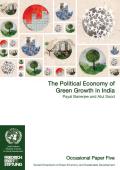This study forms part of the European Commission’s on-going analysis of the opportunities to be gained from improving resource efficiency and how best to help businesses realise the economic potential, as well as environmental and social benefit. The study has examined the main resource efficiency measures available to EU business using a top-down review of literature on resource efficiency together with a bottom-up review of industry data and examples from case studies. Preliminary conclusions on measures were validated through limited industry consultation with EU-based businesses. The scope for businesses to improve resource efficiency has been assessed and the opportunity to business quantified through a business lens as new estimates of direct economic benefits. This research provides a new economic perspective to complement other published studies, a better insight into the impact on businesses of policies and programmes on resource efficiency, and an understanding of the relative effectiveness of resource efficiency measures and of the measures which might best suit particular businesses or sectors of the economy.
Improving environmental performance, tackling global warming and enhancing resource management are high on the list of global challenges that must be addressed urgently. The information and communications technology (ICT) industry needs to further improve its environmental performance (it is responsible for around 2-3% of the global carbon footprint), and ICT applications have very large potential to enhance performance across the economy and society (the remaining 97-98%). Governments and business associations have introduced a range of programmes and initiatives on ICT and the environment to address environmental challenges, particularly global warming and energy use. Some government programmes also contribute to national targets set in the Kyoto Protocol (e.g. Denmark’s Action Plan for Green IT and Japan’s Green IT Initiative). Business associations have mainly developed initiatives to reduce energy costs and to demonstrate corporate social responsibility. This survey analyses 92 government programmes and business initiatives across 22 OECD countries plus the European Commission.

Rapid economic growth in India during the last two decades has accentuated the demand for energy and natural resources related to water, land and forests. Based on a review of the current policy framework in these areas and data from fieldwork in the northeastern region of India, this paper addresses two inter-related themes: (i) how emerging economies like India have dealt with the question of access to resources in response to the opposing demands of inclusive growth and social divides; and (ii) the specific case study of the 'Green Mission' and hydroelectric power (HEP) dams on the river Teesta in India’s northeastern Himalayan region.
This summary was prepared by Eldis.
Electric vehicles are a potentially significant route towards low-carbon transport but widespread adoption of e-mobility will lead to greater consumption of electricity. Existing electricity systems will need to be reconfigured to meet these needs if reliance on fossil fuels is not to increase. In a paper looking at the potential of Smart Grids and electric vehicles to change and improve electricity systems worldwide, the International Transport Forum found that:
Sensors and sensor networks have an important impact in meeting environmental challenges. Sensor applications in multiple fields such as smart power grids, smart buildings and smart industrial process control significantly contribute to more efficient use of resources and thus a reduction of greenhouse gas emissions and other sources of pollution.
This report gives an overview of sensor technology and fields of application of sensors and sensor networks. It discusses in detail selected fields of application that have high potential to reduce greenhouse gas emissions and reviews studies quantifying the environmental impact.
